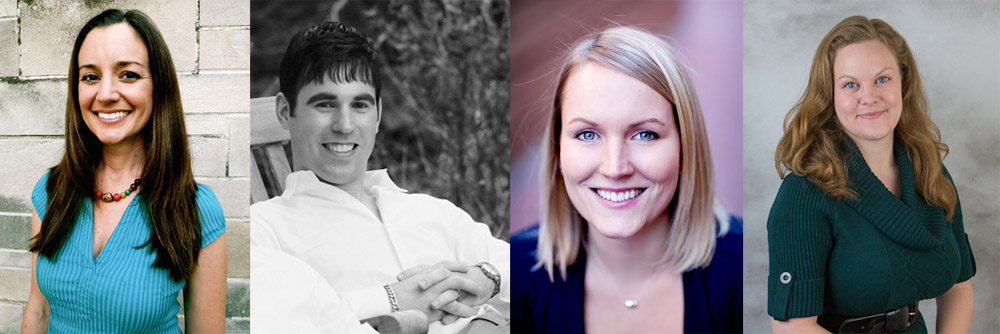
What does being a sex researcher really entail?
Ask the average person what a sex researcher does, and they’ll likely guess that researchers watch people have sex in a lab. The truth is, sex researchers don’t usually come that close to their subject — but they still love their jobs and are producing excellent and insightful work (which we have highlighted on this blog many a time!).
To show how varied the field of sex research is, Nerve interviewed four different researchers: Dr. Debby Herbenick, a research scientist who studies consumer sex products, self-image, and health, Dr. Justin Lehmiller, an expert on casual sex, Dr. Kristen Mark, who focuses on sex within long-term relationships, and Sarah Merrill, who studies physiological and subjective arousal.
Dr. Debby Herbenick fell into sex research first by working at The Kinsey Institute. She now teaches human sexuality classes at Indiana University, gives talks, writes articles, and of course, conducts research. She does a lot of survey research focusing on genital self-image and health, sexual behavior (such as use of condoms, sex toys, and lube), and exercise-induced orgasm. She is the innovator behind Make Sex Normal and believes the most important thing to remember about sex is that “we’re all a little unique with our sexuality — and that uniqueness is something to appreciate, not fear.”
Dr. Justin Lehmiller is a casual sex specialist who conducts anonymous surveys and runs a blog called Sex and Psychology. His interest in sex research was piqued when he was assigned a teaching assistant position for a sexuality course in graduate school. He firmly believes that the modern hullabaloo about “hook-up culture” is unfounded — young people aren’t having any more casual sex than in the 80s and 90s. He finds that being a sex researcher makes him a hit at parties: “Every time I tell new people what I do, whether I am at the bar or at a formal dinner, everyone wants to talk about sex and ask their burning questions for the rest of the evening.”
Dr. Kristen Mark works at the University of Kentucky as director of the Sexual Health Promotion Lab. She is interested in how couples can maintain satisfying sex lives in long-term relationships (short answer: communication). When not conducting surveys, she also teaches several courses and seminars on sexuality education and healthy relationships. What people forget about sex, she says, is that “Individual preferences outweigh any tips or tricks. Talk to your partner. Learn what they like. Explore.”
Sarah Merrill is a Developmental Psychology Ph.D. student at Cornell University. Her research focuses on sexual orientation fluidity (“There can be, and should be, a significant amount of nuance when talking about a person’s sexual orientation”), the role of sex in adult attachments, and the gap between physiological and subjective arousal. Using a combination of eye tracking and pupil dilation measurements, her lab tracks sexual arousal in participants and compares it to the participants’ subjective accounts of what arouses them. Often, subjective arousal and physiological arousal don’t match, and Merrill is trying to figure out why — and if any alterations to the studies can make them match more closely.
Read full interviews with all four researchers here!
